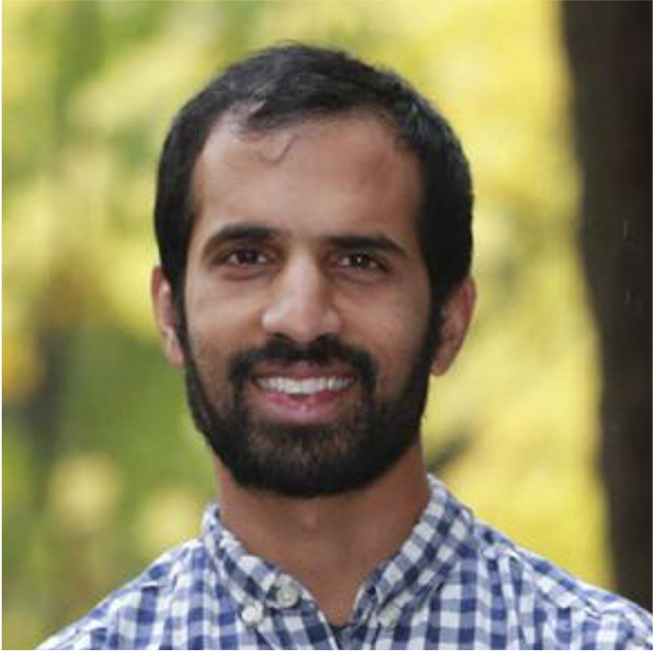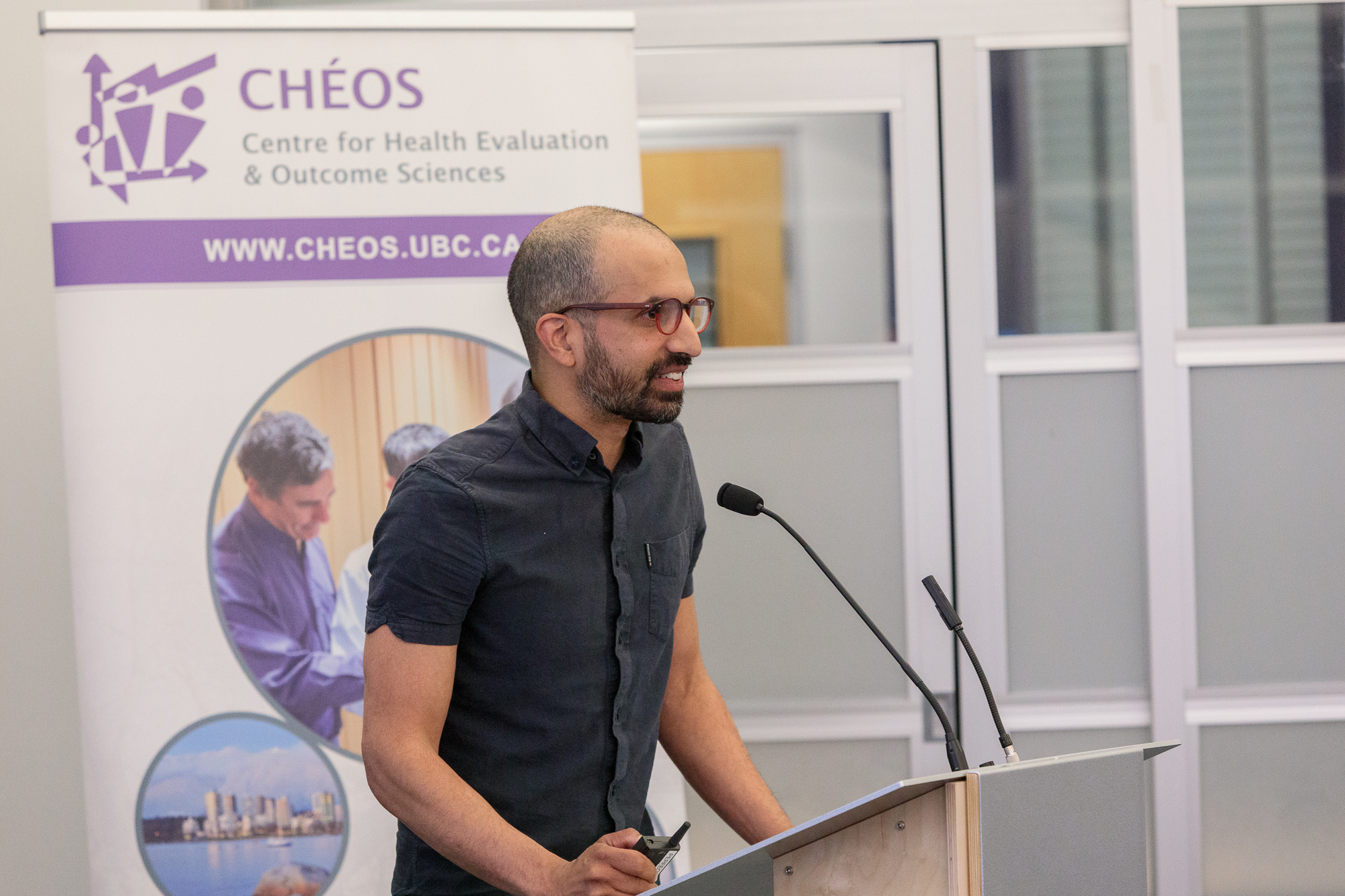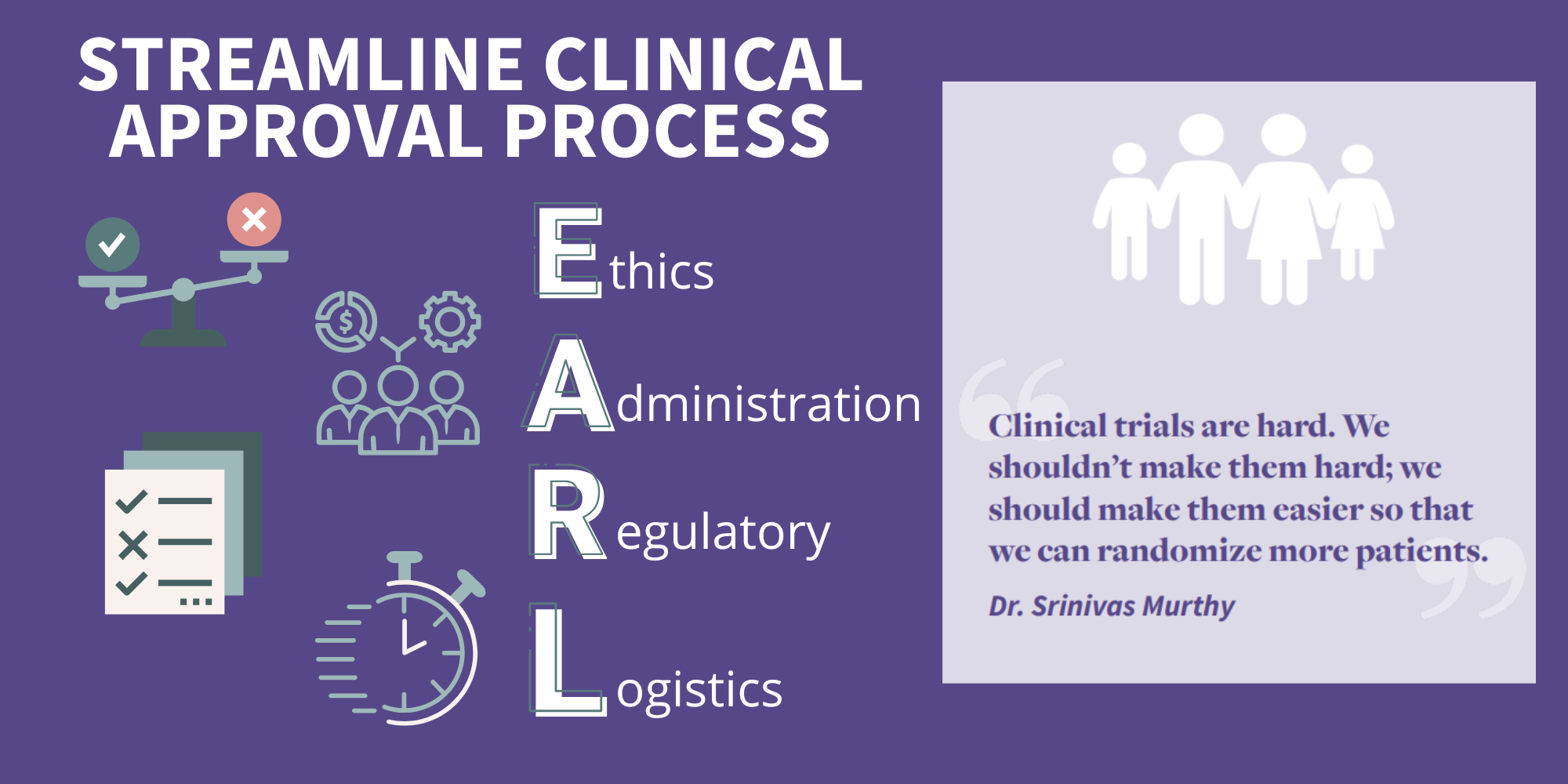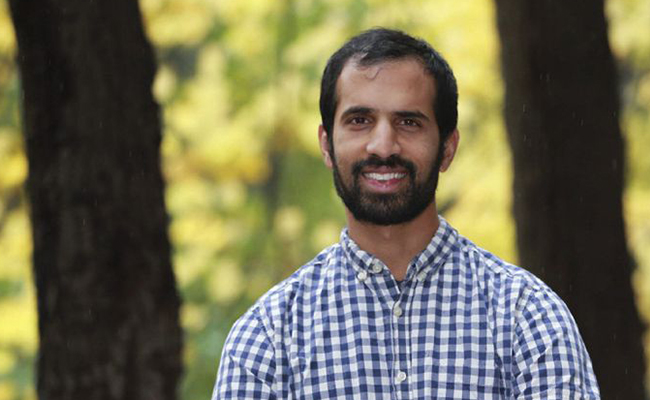Meet pediatric infectious disease and critical care doctor Dr. Srinivas Murthy, Advancing Health’s newest Scientist.
“I’ve always asked questions about how things can be done better in health care,” he said. “Not just locally but also globally, by understanding how we can improve practice to save the most lives.”
Starting at a global scale

Dr. Murthy’s interest in physiology and infectious diseases drew him to both treating patients and conducting research to improve their care. He trained as a medical doctor at McGill University and also completed a Master’s of Epidemiology at the University of British Columbia. His research actually started at an international level, where he was interested in asking global health questions.
He was clinically involved in a number of global outbreaks, including diphtheria, Ebola, and measles, where he learned that embedding research into the response to outbreaks is fundamental to how outbreaks are managed.
“My main interests are in emerging infection and novel pathogen research. For example, how we can improve the clinical management of these infectious diseases?” said Dr. Murthy. “Answering these questions also became very timely over the past number of years as COVID came about.”
A common task for managing infectious diseases is preventing or managing additional complications that can arise from the infection. For example, one of the most common clinical syndromes of infectious diseases is pneumonia, with the flu causing about one-third of all cases worldwide. Dr. Murthy, with several international collaborators, was recently funded by CIHR to expand upon a clinical trial aiming to figure out how to rapidly identify the most effective treatments for patients with pneumonia contracted outside of the hospital, called community-acquired pneumonia. The Randomized Embedded Multifactorial Adaptive Platform Trial in Community-Acquired Pneumonia (REMAP-CAP), originally conceived a decade ago, has since expanded to 361 hospitals around the world, evaluating more than 55 different potential treatments. Since COVID-19, the REMAP-CAP trial has studied over 10,000 patients with COVID-19 with the goal to understand how to best treat critically ill patients during an emerging pandemic.
But what makes this clinical trial able to adapt to the changing medical landscape and shifting priorities caused by pandemics?
Switching up the standard clinical trial
Unlike traditional clinical trials, platform clinical trials like REMAP-CAP do not aim to answer a specific clinical question. These trials look at a population — in Dr. Murthy’s research, patients with community-acquired pneumonia — and compare multiple interventions and ways of delivering care against a control group. Ultimately, the goal is to identify the best therapy to treat a disease. In theory, platform clinical trials are integrated as much as possible within the health system creating a platform of learning and not a free-standing clinical trial that pops in and leaves once the clinical question has been answered.

“Back in 2011 when I was a trainee, adaptive platform trials were just a vision we were working on,” shared Dr. Murthy. “These types of trials hadn’t been done at the time, and I was fortunate to be working with several world experts in pandemic research and clinical trial development to come together to figure out how these types of trials could work. We chose community-acquired pneumonia, partially as a proof-of-concept, because it was a very pandemic-prone clinical syndrome and adaptive platform clinical trials could be implemented internationally with long-term and significant impact on global health.”
This experience in jumpstarting platform trials in pneumonia meant that Dr. Murthy was ready to quickly launch new COVID projects, for example being the lead on the national CATCO trial, the global SPRINT-SARI observational study, and for REMAP-CAP, which recruited a great number of COVID-19 patients.
Having run global clinical trials during the COVID-19 pandemic, Dr. Murthy was invited to be one of the speakers at our Clinical Trials at the Speed of COVID-19: Flexibility and Rapid Innovation symposium. He focused on sharing learnings and frustrations on implementing a global-level clinical trial, emphasizing the importance of streamlining the clinical trial approval process using the E.A.R.L. technique.

Dr. Murthy is passionate about continuing to improve Canada’s clinical trial infrastructure by running more innovative trials and integrating them into health care. This work contributes to learning health systems that improve patient outcomes and can respond effectively to pandemic situations.
“Clinical trials are the gold standard in research to evaluate a medical, surgical, or behavioural intervention; however, with adaptive platform clinical trials we can better produce information for the larger community generalizable across the population while increasing efficiency in both patient care and clinical research,” he said.
Pushing the innovation envelope
Clinical trials play a crucial role in bridging the gap between developing novel technology, improving patient care, and getting these interventions into clinical use. As part of Dr. Murthy’s passion for improving care, he recognizes the huge opportunity Canada has to become a leader in biotechnology.
“We have the innovation space to create new products to make patients better but we also need to ensure that patients have access to treatments. The challenge lies in improving the Canadian infrastructure to facilitate testing these locally developed innovations with patients both in Canada and around the world in effective clinical trials,” said Dr. Murthy. “What we hope to do with these platform clinical trials is to provide opportunities for new interventions to be tested under an integrated infrastructure so that Canadian innovations can be evaluated and implemented locally.”
Being aware of what’s happening on a global scale, both in medicine and in general, is important not only to continue innovating in health care but also to understand how people respond to public health measures, he explained.
“I think probably the biggest challenge in public health is how we communicate findings and research with the public,” emphasizes Dr. Murthy. “Misinformation and disinformation are very prevalent and can influence decisions people make about their health. We need to support identifying and combatting disinformation and misinformation by providing widespread, accessible, and reliable sources.”
Curious about what newspapers and media Dr. Murthy uses to stay informed? He published a Twitter thread listing several of the resources he reads and supports. Check it out here.



